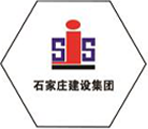
Dec . 10, 2024 07:54
Back to list
relief valve
Understanding Relief Valves Function, Importance, and Applications
Relief valves play a critical role in various industrial applications, serving as a safety feature that prevents excessive pressure buildup in systems. These devices are designed to automatically relieve excess pressure when it reaches a predetermined threshold, thereby protecting equipment, piping, and personnel from the dangers associated with over-pressurization. In this article, we will delve into the function and importance of relief valves, as well as explore their applications across different industries.
The Function of Relief Valves
At its core, a relief valve functions as a type of pressure control device. It is typically installed on a pressurized vessel or a pipeline to maintain safe operating conditions. When the pressure in the system surpasses the setpoint of the valve, the valve opens, allowing excess fluid or gas to escape. Once the pressure drops back to a safe level, the valve reseals, preventing further discharge. This process is critical for maintaining the integrity of equipment and ensuring safety.
Relief valves can be classified into two main types spring-loaded and pilot-operated. Spring-loaded relief valves utilize a compression spring to hold the valve closed. When the pressure exceeds the spring’s force, the valve opens. Pilot-operated relief valves, on the other hand, use a small pilot valve to control the larger main valve, allowing for greater accuracy and responsiveness.
Importance of Relief Valves
The significance of relief valves cannot be overstated
. They are essential components in preventing catastrophic failures in industrial processes. Without relief valves, systems would be at risk of explosive failures, leaks, or other dangerous incidents caused by overpressure. The consequences of such failures can include significant financial losses, environmental damage, and serious injuries or fatalities.relief valve

In addition to providing safety, relief valves contribute to the operational efficiency of systems. By maintaining pressure within designated limits, these devices ensure optimal performance and longevity of equipment. Furthermore, regular maintenance and testing of relief valves are vital to ensure their reliability and effectiveness over time.
Applications of Relief Valves
Relief valves are utilized in a wide range of industries, including chemical processing, oil and gas, power generation, and water treatment. For instance, in the chemical industry, relief valves are essential for protecting reactors and storage tanks that operate under high pressure. They prevent the risk of explosion due to volatile reactions or temperature fluctuations.
In the oil and gas sector, relief valves play a vital role in upstream and downstream operations. They protect pipelines and storage facilities from the dangers of overpressure, particularly during the transportation and storage of crude oil and natural gas. Similarly, in power plants, relief valves safeguard boilers and turbines, ensuring that pressure levels remain within safe operating limits.
Additionally, relief valves are crucial in HVAC systems, where they prevent excessive pressure buildup in refrigeration and air conditioning equipment. They help maintain the efficiency of these systems while ensuring safety for both equipment and users.
Conclusion
In conclusion, relief valves are indispensable components of modern industrial systems. They provide a safety net against the dangers of overpressure, protecting both personnel and equipment. By understanding the function, importance, and applications of relief valves, industries can better appreciate their role in maintaining safe and efficient operations. As technology advances, the design and performance of relief valves continue to evolve, ensuring that they remain effective in safeguarding a wide array of processes across various fields. Investing in quality relief valves and implementing regular maintenance practices is essential for any operation that deals with pressurized systems.
Next:
Latest news
-
Safety Valve Spring-Loaded Design Overpressure ProtectionNewsJul.25,2025
-
Precision Voltage Regulator AC5 Accuracy Grade PerformanceNewsJul.25,2025
-
Natural Gas Pressure Regulating Skid Industrial Pipeline ApplicationsNewsJul.25,2025
-
Natural Gas Filter Stainless Steel Mesh Element DesignNewsJul.25,2025
-
Gas Pressure Regulator Valve Direct-Acting Spring-Loaded DesignNewsJul.25,2025
-
Decompression Equipment Multi-Stage Heat Exchange System DesignNewsJul.25,2025

